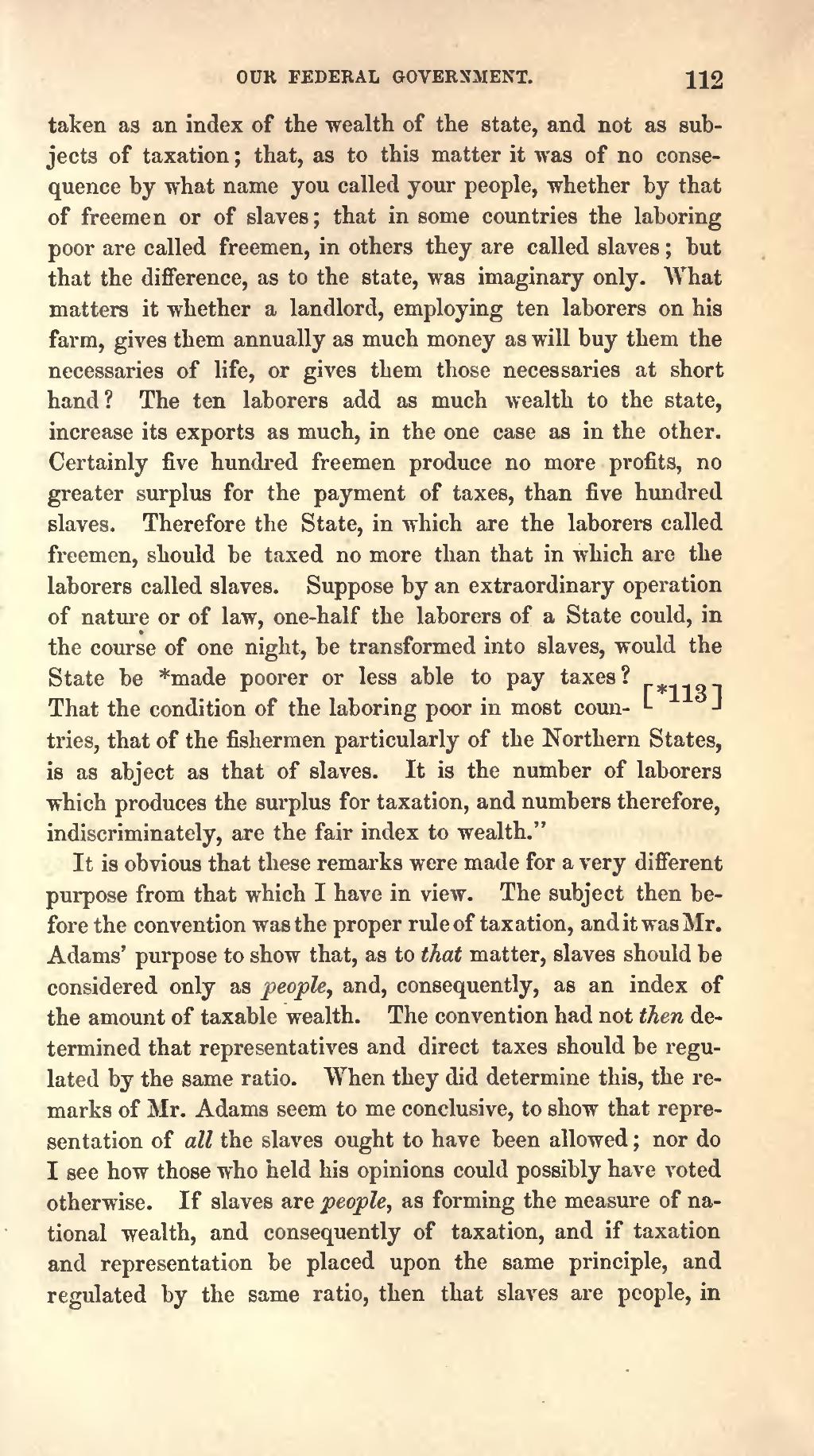taken as an index of the wealth of the state, and not as subjects of taxation; that, as to this matter it was of no consequence by what name you called your people, whether by that of freemen or of slaves; that in some countries the laboring poor are called freemen, in others they are called slaves; but that the difference, as to the state, was imaginary only. What matters it whether a landlord, employing ten laborers on his farm, gives them annually as much money as will buy them the necessaries of life, or gives them those necessaries at short hand? The ten laborers add as much wealth to the state, increase its exports as much, in the one case as in the other. Certainly five hundred freemen produce no more profits, no greater surplus for the payment of taxes, than five hundred slaves. Therefore the State, in which are the laborers called freemen, should be taxed no more than that in which are the laborers called slaves. Suppose by an extraordinary operation of nature or of law, one-half the laborers of a State could, in the course of one night, be transformed into slaves, would the State be [ *113 ]*made poorer or less able to pay taxes? That the condition of the laboring poor in most countries, that of the fishermen particularly of the Northern States, is as abject as that of slaves. It is the number of laborers which produces the surplus for taxation, and numbers therefore, indiscriminately, are the fair index to wealth."
It is obvious that these remarks were made for a very different purpose from that which I have in view. The subject then before the convention was the proper rule of taxation, and it was Mr. Adams' purpose to show that, as to that matter, slaves should be considered only as people, and, consequently, as an index of the amount of taxable wealth. The convention had not then determined that representatives and direct taxes should be regulated by the same ratio. When they did determine this, the remarks of Mr. Adams seem to me conclusive, to show that representation of all the slaves ought to have been allowed; nor do I see how those who held his opinions could possibly have voted otherwise. If slaves are people, as forming the measure of national wealth, and consequently of taxation, and if taxation and representation be placed upon the same principle, and regulated by the same ratio, then that slaves are people, in
